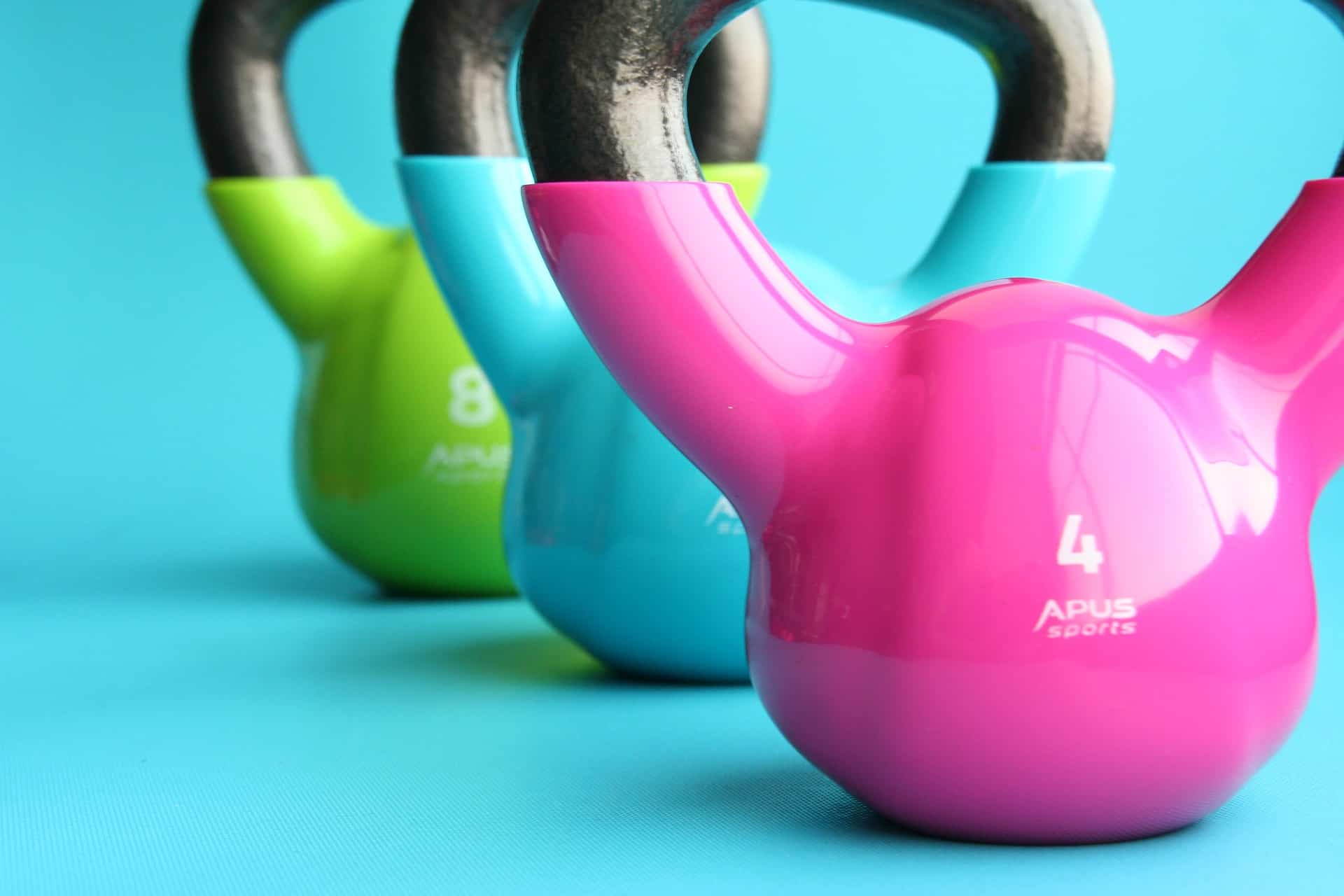Updated on July 14th, 2022
College weight gain is common enough that one type ended up with a nickname: the freshman 15. While that may make it seem like putting on some pounds is inevitable, that isn’t the case. Your student can stay fit in college by using the right approach.
If you and your student want to learn about how to find and land scholarships during their time at college, sign up for our free college scholarship webinar! Take a quick trip over to http://thescholarshipsystem.com/freewebinar to reserve a spot today.
If your student is trying to figure out how to avoid the freshman 15, here’s what they need to know about this type of college weight gain and what they can do to stave it off.
Contents
What Is the Freshman 15?
The term “freshman 15” refers to the weight students often gain during their first year in college. While the “15” technically signifies 15 pounds, the broader term applies to any notable weight gain during that period.
Since the term is widely used, many students assume this kind of college weight gain is inevitable. Many would think it refers to the average or typical college experience. However, that isn’t necessarily the case.
One study determined that the average college weight gain among students is 2.7 pounds. Additionally, some who participated ended up losing weight. But that doesn’t mean the freshman 15 can’t happen.
What Causes Freshman 15 College Weight Gain?
College weight gain – particularly during a student’s first year in school – is typically tied to a few things. One of the biggest is new eating habits.
For many freshmen, it’s their first time living away from home and being in complete control of their diet. Since students might have some degree of cooking experience and limited access to a genuine kitchen, they may frequently turn to fast food or other highly convenient, but not traditionally healthy, meals. That can lead to a significant increase in caloric intake, resulting in weight gain.
In some cases, college students also snack more frequently. For example, if they are participating in a late-night study session, they might eat in hopes of staying energized. However, if this pushes their total caloric intake above what they need, weight gain occurs.
Similarly, snacking may become a source of comfort. Comfort eating is a common stress response and, if it isn’t metered, can lead to some extra pounds.
Drinking alcohol more frequently may also cause students to put on extra pounds. Many alcoholic beverages are high calories, particularly those featuring soda, juice, and other sugary ingredients.
Further, not all students get much exercise. Full-time class schedules and long study sessions usually involve long periods of sitting. Plus, it can be mentally exhausting, making the idea of squeezing in a workout seem incredibly burdensome.
Additionally, if the student is working part-time, they may have even less time and energy for exercise. If that happens, a regular exercise routine might not seem practical.
Finally, some college weight gain is simply based on students reaching a particular age. In their late teens and early 20s, most students stop growing or at least slow down dramatically. As a result, their body doesn’t need as many calories to function as it isn’t supporting those growth-related activities. That can mean students who maintain their routine may put on a little weight because the growth spurts are over.
How to Avoid the Freshman 15
If your student is trying to prevent the freshman 15, it’s actually pretty simple. Diet and exercise are the most significant factors in college weight gain. So, by being mindful of what they’re eating and how much they’re exercising, they can avoid any extra pounds.
On the food side of the equation, it’s mostly about making healthy choices. Being calorie and nutrition-aware can make a significant difference on its own, ensuring your student remains mindful when they plan meals.
However, if they aren’t sure what foods or drinks are or aren’t healthy, a simple nutrition tracking app can work wonders. If they choose one that tracks calories and macros (carbs, protein, and fat), they can get more insights into their diet. Going the extra mile and finding one that also monitors sugar intake specifically can be wise, too, as well as an app that can factor in physical activity.
Otherwise, following the basic principles of healthy eating can give them a solid foundation. Focus on vegetables above all else, adding in fruit for some natural sweetness. Get some lean protein at every meal, and choose whole grains instead of processed ones. Skip sugary drinks, favoring unsweetened alternatives like water, coffee, or tea instead. Limit all highly processed foods, going with natural options whenever possible.
When it comes to staying fit in college, high-intensity interval training (HIIT) can yield exceptional results in a short time. For example, one study showed that 10-minute HIIT workouts featuring a series of 1-minute sprints could offer the same benefits of a 45-minute moderate-intensity workout.
However, anything can work as long as your student does it long enough. If they have a favorite kind of exercise or activity, that might be their perfect fit. They can inject some fun into their week while they stay fit in college.
How to Lose the Freshman 15
If your student wants to lose weight in college, the tips on how to avoid the freshman 15 still apply. By making smarter eating choices and staying active, they can achieve a calorie deficit, causing their body to burn fat to get the energy it needs. When that happens, weight loss usually comes with it.
Now, students shouldn’t create a caloric deficit that’s too dramatic. Typically, gradual and steady weight loss is the best approach to keep the weight off long-term. In most cases, that means losing around one to two pounds per week.
Figuring out exactly how many calories your student needs to cut to lose weight is tricky. Everyone’s body is different, so there isn’t a one-size-fits-all answer.
However, if your student is moderately active, they can get a quick estimate by multiplying their current weight by 15. That’s an estimate of the number of calories their body needs per day to maintain its weight, suggesting they continue exercising regularly.
Then, it’s time to factor in the weight loss goal. Since your student needs to achieve a calorie deficit of 3,500 to lose one pound, cutting their caloric intake by 500 to 1,000 calories per day can lead to one to two pounds of weight loss per week.
However, it’s also important to ensure that their daily caloric intake doesn’t drop too far. Many experts put the lower cutoff at 1,200 calories, mainly because it’s viewed as the minimum amount required to avoid starvation mode. But that doesn’t mean that’s a good idea for everyone. For many people, a 1,200-calorie diet isn’t sufficient, leading to side effects like fatigue, headaches, and dizziness, as well as nutritional deficiencies.
Ultimately, your student should always listen to their body. Additionally, with any major lifestyle change, your student should speak with their doctor. That way, they can create a safe and effective plan for weight loss.
Creating a College Workout Plan
If your student wants to create a college workout plan, their first step should be to see what free resources are available on campus. This can include gym equipment, tracks, and swimming pools, as well as student-run athletically-oriented clubs.
Additionally, they should consider the potential of a down-based college student workout plan. Many bodyweight exercises can be done in tight spaces, making them solid choices for college students. Some examples include:
- Crunches
- Leg Raises
- Lunges
- Planks
- Push-Ups
- Squats
- Supermans
- Yoga
As for exercise tips for college students, the biggest one is choosing activities they enjoy. When working out provides the right benefits – like busting stress or being legitimately fun – your student is more likely to stick with it. In the end, that’s what matters most.
If you and your student want to learn about how to find and land scholarships during their time at college, sign up for our free college scholarship webinar! Take a quick trip over to http://thescholarshipsystem.com/freewebinar to reserve a spot today.









Leave a Reply